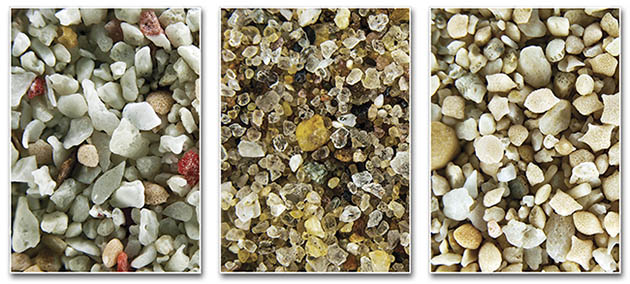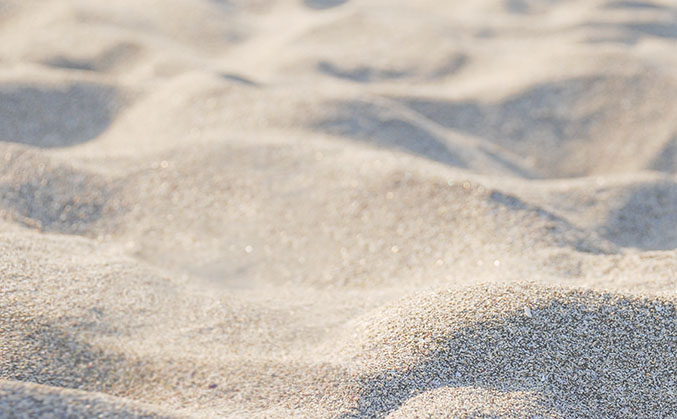Exposed to the scorching heat of the sun, which blazes at its maximum intensity, these almost insignificant granules of infertile earth make up the deserts and beaches spread over the face of the earth. Incapable even of retaining the high temperature that it receives for hours, sand is scattered in abundance throughout the continents, at the mercy of the winds, which can carry it far away from its original location.
Between one grain and another there is no connection, no brotherhood or bond, not the least mutual relationship. Each seems unaware of the extensive society of which it is part. Under the effect of water they come together, it is true, but they do not form a unity. They easily separate from each other, so as to remain chacun dans sa chacunière.1
There are beautiful aspects of sand that we could highlight, but let take this detail of its constitution as a starting point to reflect on certain attitudes we may have, and to ask ourselves whether they are good or bad, morally speaking.
As inanimate beings, these little grains are not aware of their “individualism”, because it is a characteristic of the nature with which God created them. The same, however, does not apply to us when, in our social relationships, we live selfishly like grains of sand… Are we free from the evils that such behaviour implies?

All of us, without exception, have been inserted into a society: in a family, in our faith, at school, at work, in our circle of friendships, in a religious vocation… However, although we are in close proximity to others and may even perform some task or mission together with them, we can fall into the tendency to be concerned solely with our own interests, without establishing a true spiritual bond with others.
And this deplorable habit will not fail to have consequences… The first of them is the risk of never developing our personality. After all, we only reach our own fullness in contact with others, never alone.
Moreover, the selfish are prone to being carried along by any wind, to the detriment of their earthly and eternal life! Indeed, who among us would be able to overcome the sufferings of our present existence and reach Heaven relying only on our own strength? Ecclesiastes left us the following teaching: “For if they fall, one will lift up his fellow; but woe to him who is alone when he falls and has not another to lift him up” (4:10).

If, on the contrary, we know how to lean on our neighbor in a relationship based on love of God, we will be unvanquished by adversity. Supporting one another and assuming as our own the other’s weakness or joy, we will not be shaken by interior or exterior disasters but, united with our brothers and sisters in the Faith, we will stand fast, like a cliff that faces hurricanes and stormy seas unscathed. Let us examine the rock, and we will see: it is firm because it is one solid piece; when it crumbles it becomes sand which is swept aimlessly wherever the wind carries it.
Let us make a resolution in this brief meditation: no egoism! Let us give ourselves to others, take an interest in them, and reinforce ties of true charity with our neighbor. Let us turn our gaze away from ourselves and towards those whom we can help. This decision will draw down graces for our sanctification and that of others, and will contribute to the fulfillment of God’s plans in history. ◊
Taken from the Heralds of the Gospel magazine, #186.
Notes
1 French expression that can be used to refer to selfish dispositions, in the sense of “each in his own little world.”

